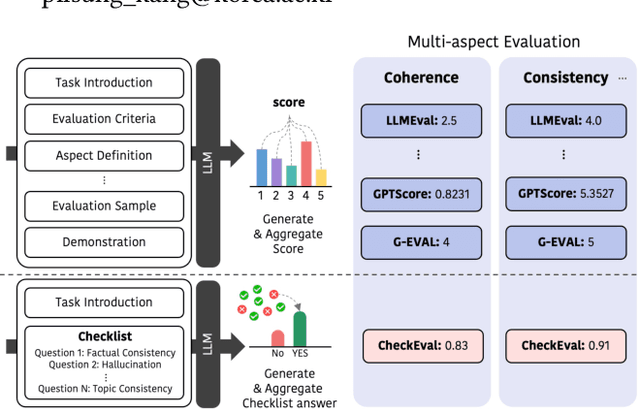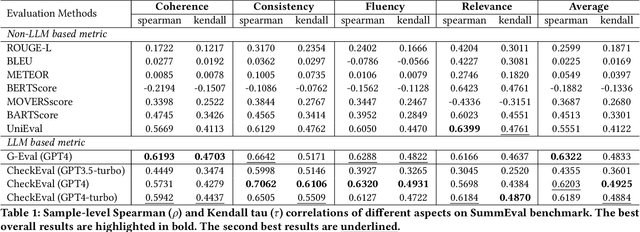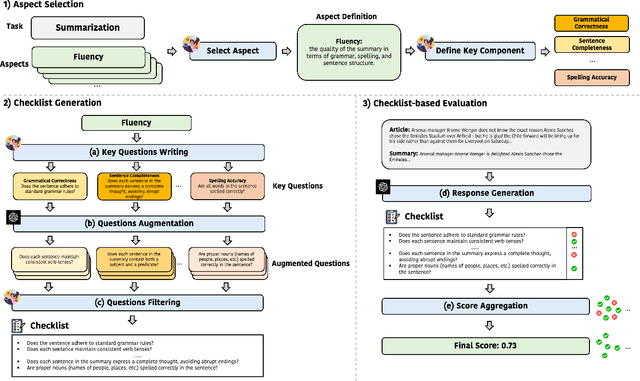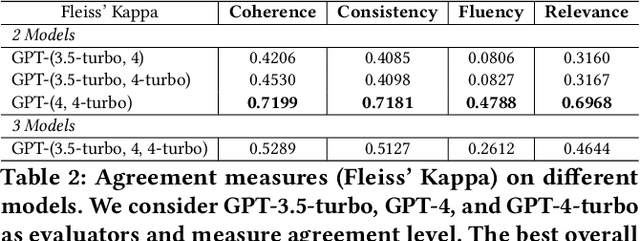Joonghoon Kim
A.X K1 Technical Report
Jan 15, 2026Abstract:We introduce A.X K1, a 519B-parameter Mixture-of-Experts (MoE) language model trained from scratch. Our design leverages scaling laws to optimize training configurations and vocabulary size under fixed computational budgets. A.X K1 is pre-trained on a corpus of approximately 10T tokens, curated by a multi-stage data processing pipeline. Designed to bridge the gap between reasoning capability and inference efficiency, A.X K1 supports explicitly controllable reasoning to facilitate scalable deployment across diverse real-world scenarios. We propose a simple yet effective Think-Fusion training recipe, enabling user-controlled switching between thinking and non-thinking modes within a single unified model. Extensive evaluations demonstrate that A.X K1 achieves performance competitive with leading open-source models, while establishing a distinctive advantage in Korean-language benchmarks.
HyperCLOVA X Technical Report
Apr 13, 2024Abstract:We introduce HyperCLOVA X, a family of large language models (LLMs) tailored to the Korean language and culture, along with competitive capabilities in English, math, and coding. HyperCLOVA X was trained on a balanced mix of Korean, English, and code data, followed by instruction-tuning with high-quality human-annotated datasets while abiding by strict safety guidelines reflecting our commitment to responsible AI. The model is evaluated across various benchmarks, including comprehensive reasoning, knowledge, commonsense, factuality, coding, math, chatting, instruction-following, and harmlessness, in both Korean and English. HyperCLOVA X exhibits strong reasoning capabilities in Korean backed by a deep understanding of the language and cultural nuances. Further analysis of the inherent bilingual nature and its extension to multilingualism highlights the model's cross-lingual proficiency and strong generalization ability to untargeted languages, including machine translation between several language pairs and cross-lingual inference tasks. We believe that HyperCLOVA X can provide helpful guidance for regions or countries in developing their sovereign LLMs.
CheckEval: Robust Evaluation Framework using Large Language Model via Checklist
Mar 27, 2024



Abstract:We introduce CheckEval, a novel evaluation framework using Large Language Models, addressing the challenges of ambiguity and inconsistency in current evaluation methods. CheckEval addresses these challenges by dividing evaluation criteria into detailed sub-aspects and constructing a checklist of Boolean questions for each, simplifying the evaluation. This approach not only renders the process more interpretable but also significantly enhances the robustness and reliability of results by focusing on specific evaluation dimensions. Validated through a focused case study using the SummEval benchmark, CheckEval indicates a strong correlation with human judgments. Furthermore, it demonstrates a highly consistent Inter-Annotator Agreement. These findings highlight the effectiveness of CheckEval for objective, flexible, and precise evaluations. By offering a customizable and interactive framework, CheckEval sets a new standard for the use of LLMs in evaluation, responding to the evolving needs of the field and establishing a clear method for future LLM-based evaluation.
Which is better? Exploring Prompting Strategy For LLM-based Metrics
Nov 07, 2023Abstract:This paper describes the DSBA submissions to the Prompting Large Language Models as Explainable Metrics shared task, where systems were submitted to two tracks: small and large summarization tracks. With advanced Large Language Models (LLMs) such as GPT-4, evaluating the quality of Natural Language Generation (NLG) has become increasingly paramount. Traditional similarity-based metrics such as BLEU and ROUGE have shown to misalign with human evaluation and are ill-suited for open-ended generation tasks. To address this issue, we explore the potential capability of LLM-based metrics, especially leveraging open-source LLMs. In this study, wide range of prompts and prompting techniques are systematically analyzed with three approaches: prompting strategy, score aggregation, and explainability. Our research focuses on formulating effective prompt templates, determining the granularity of NLG quality scores and assessing the impact of in-context examples on LLM-based evaluation. Furthermore, three aggregation strategies are compared to identify the most reliable method for aggregating NLG quality scores. To examine explainability, we devise a strategy that generates rationales for the scores and analyzes the characteristics of the explanation produced by the open-source LLMs. Extensive experiments provide insights regarding evaluation capabilities of open-source LLMs and suggest effective prompting strategies.
 Add to Chrome
Add to Chrome Add to Firefox
Add to Firefox Add to Edge
Add to Edge